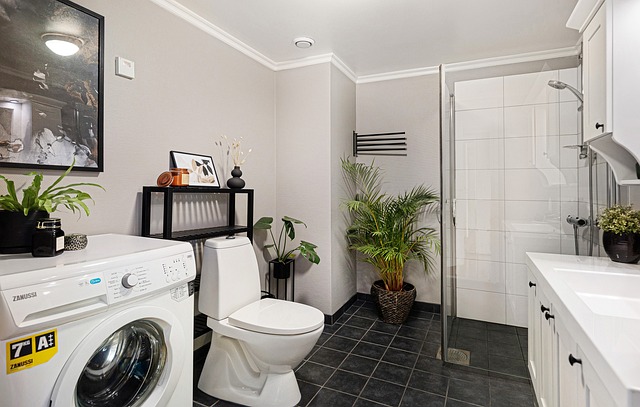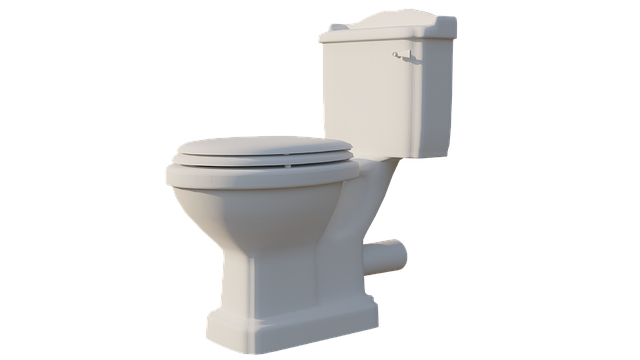Affordable, Top-Rated Handicap Toilet Rentals with Free Delivery in Plano TX
Are you organizing an event in Plano, Texas, and worried about providing accessible restrooms for al…….
Introduction
In the dynamic landscape of accessibility solutions, the “Handicap Portable Toilet Plano TX” emerges as a critical component in ensuring inclusivity and dignity for individuals with mobility challenges. This article delves into the multifaceted aspects of handicap portable toilets, particularly within the context of Plano, Texas. We will explore their design, functionality, historical context, and the broader societal implications they carry. By the end of this exploration, readers will have a comprehensive understanding of the significance of these units and how they contribute to public health, safety, and accessibility.
Understanding Handicap Portable Toilet Plano TX
A handicap portable toilet is a self-contained sanitation facility designed for individuals with disabilities that impede their ability to use conventional toilets. These units are equipped with features such as higher toilets, grab bars, ample space for maneuvering, and in some cases, specialized seating to accommodate various accessibility needs. The concept of portable toilets has been around for decades, evolving from simple, temporary sanitation solutions into sophisticated, accessible units that cater to the specific requirements of users with disabilities.
The relevance of handicap portable toilets cannot be overstated, especially in a vibrant city like Plano, TX, which prides itself on inclusivity and community service. These toilets enable people with mobility issues to engage more fully with public spaces, thereby enhancing their quality of life and ensuring their right to privacy and comfort when nature calls.
Global Impact and Trends
The impact of handicap portable toilets transcends geographical boundaries, influencing global discourse on accessibility and sanitation. As the world grapples with the United Nations’ Sustainable Development Goal (SDG) 6, which emphasizes clean water and sanitation for all, these portable solutions have become a focal point in addressing public health challenges, particularly in areas where permanent infrastructure is lacking or during large-scale events like festivals, sports competitions, and relief efforts.
Trends indicate a shift towards more sustainable and eco-friendly materials and practices in the manufacturing of portable toilets. Innovations such as composting toilets and solar-powered lighting are gaining traction, showcasing a commitment to environmental stewardship while maintaining accessibility standards.
Economic Considerations
The economic landscape surrounding handicap portable toilets is complex, influenced by market dynamics that include demand from public venues, government contracts, and private sector investments. In Plano, TX, the economic impact is significant, with local businesses and entrepreneurs capitalizing on the niche market of accessible sanitation solutions. These economic activities not only drive job creation but also contribute to the local economy by fostering innovation and competition within the industry.
Investment patterns in this sector reflect a growing recognition of the importance of accessibility infrastructure. As investment increases, so does the potential for these portable toilets to become more advanced and widely available, ensuring that they meet the diverse needs of users across different socio-economic backgrounds.
Technological Advancements
Technological advancements have revolutionized the handicap portable toilet industry, enhancing both functionality and user experience. Innovations such as self-contained waste treatment systems, touchless fixtures to minimize cross-contamination, and mobile apps for location tracking and maintenance scheduling are setting new standards for hygiene and convenience.
Future potential includes the integration of smart technology, allowing for real-time monitoring of usage patterns, predictive maintenance, and even personalized settings for individual users. These advancements not only improve accessibility but also contribute to a more sustainable approach to sanitation management.
Policy and Regulation
A robust policy and regulatory framework governs the use and deployment of handicap portable toilets. At the federal level, regulations such as the Americans with Disabilities Act (ADA) establish clear guidelines for accessibility. Locally, Plano’s policies may include zoning laws that dictate where these toilets can be placed and how they must be maintained.
These regulations are critical in ensuring compliance with accessibility standards and in promoting a consistent user experience across different settings. They also provide a legal framework within which businesses can operate, offering a degree of certainty and protection for both providers and users.
Challenges and Criticisms
Despite their importance, handicap portable toilets face challenges that range from design limitations to issues with placement and maintenance. Critics often cite inadequate funding, lack of oversight, and insufficient awareness as barriers to widespread adoption and effective implementation.
To address these issues, a multi-faceted approach is needed. This includes advocacy for increased funding, development of better training programs for service providers, and campaigns to raise public awareness about the importance of accessible sanitation facilities. By implementing these strategies, we can work towards overcoming the existing challenges and ensuring that handicap portable toilets are available, functional, and well-maintained.
Case Studies
Several case studies from across the globe demonstrate the successful application of handicap portable toilets in various settings. In Plano, TX, a local park successfully integrated these units into its master plan, providing accessible restroom options for events and daily visitors. Another example is a major music festival that dedicated an area with multiple accessible portable toilets, significantly improving attendees’ comfort and experience. These case studies provide valuable insights into the practical application of these facilities and highlight their positive impact on communities.
Conclusion
Handicap portable toilets are a critical component of modern sanitation infrastructure, serving a vital need for individuals with disabilities. Their presence is indicative of a society’s commitment to inclusivity, accessibility, and the well-being of all its members. As we continue to refine these units through technological innovation and policy advancement, we reaffirm our dedication to creating a world where everyone has equal access to clean, safe, and dignified sanitation facilities.
The journey towards this goal is ongoing, with each step forward contributing to a more inclusive future. Through collaboration between industry stakeholders, government entities, and community advocates, handicap portable toilets will not only meet the needs of today but also pave the way for the advancements of tomorrow.

Are you organizing an event in Plano, Texas, and worried about providing accessible restrooms for al…….

Are you organizing a concert or festival in Plano, Texas? Don’t let long port-a-potty lines disrupt…….

Are you planning an outdoor movie night in Plano, TX, but worried about providing accessible facilit…….

Are you a Plano business owner facing the challenge of providing accessible restrooms at an affordab…….

Struggling to provide accessible restroom solutions for your outdoor events in Plano, TX? Say goodby…….

Are you a Plano, TX resident or organization preparing for emergencies? You know that access to clea…….

Struggling to find accessible toilet solutions for your corporate events in Plano, TX? Look no furth…….

Are you planning an event or facing a plumbing emergency in Plano, TX? Don’t let it turn into a hass…….

Struggling to find accessible restroom solutions for your event in Plano, TX? Look no further! Our h…….